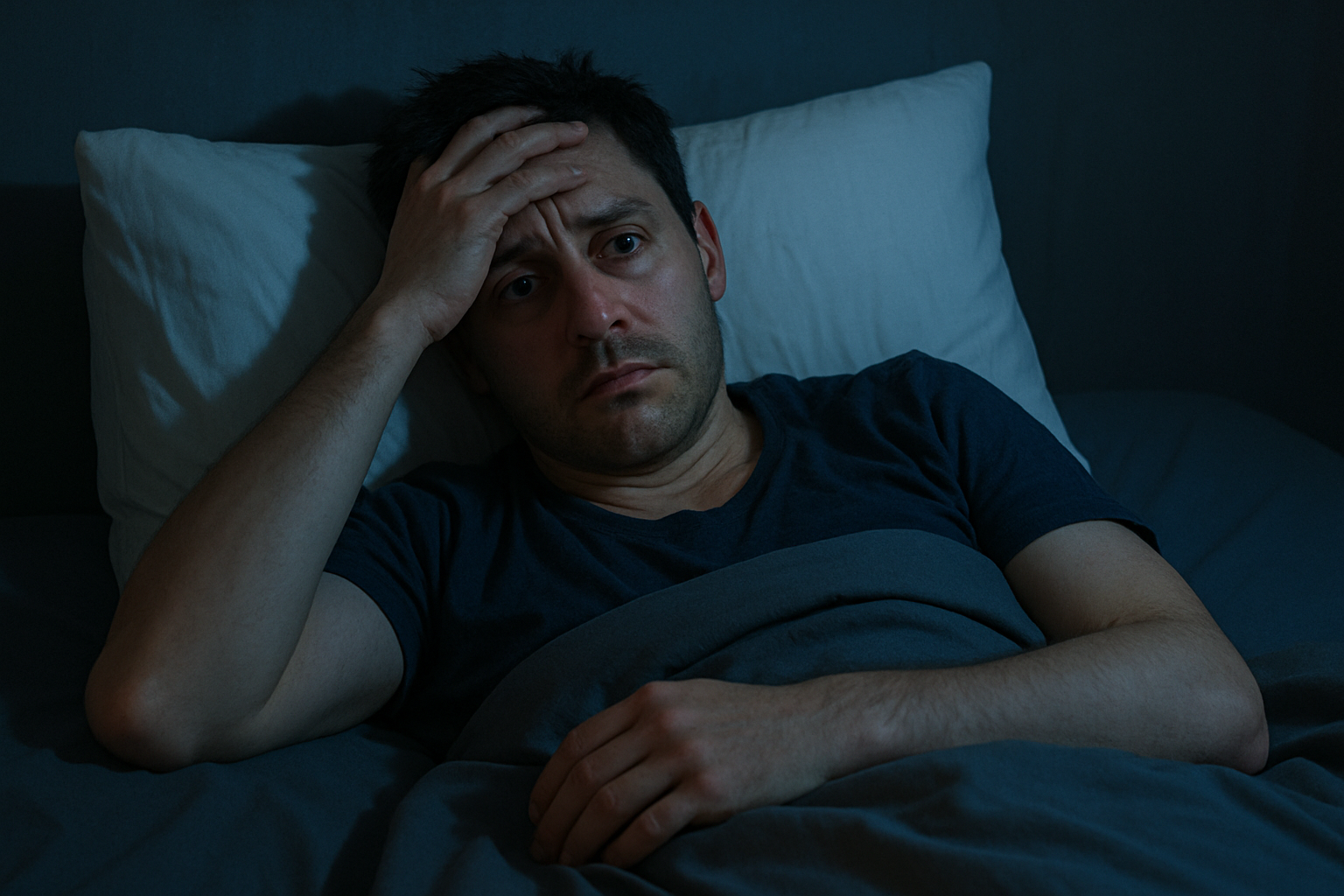Stress and Insomnia: How to Break the Cycle and Sleep Better

Introduction
In today’s fast-paced world, stress has quietly become one of the most common sleep disruptors. You might be exhausted after a long day, yet as soon as you hit the pillow, your mind races with unfinished tasks, worries, or what-ifs. This constant overthinking makes it nearly impossible to drift into restorative sleep.
If you’ve ever found yourself trapped in this cycle of stress and insomnia, you’re not alone. Millions of people worldwide struggle with the same issue — and the good news is, there are science-backed strategies to help you manage stress and sleep better.
This article will guide you through:
- How stress causes insomnia
- Why insomnia worsens stress
- Practical techniques to manage both
- The role of white noise machines in promoting better sleep
How Stress Leads to Insomnia
Stress triggers a natural “fight or flight” response in the body. While useful in real danger, it becomes problematic when activated every night in bed.
Here’s what happens inside your body:
- Cortisol surge: Stress raises cortisol levels, a hormone that keeps you alert.
- Increased heart rate: Your body thinks you need to stay awake and vigilant.
- Racing thoughts: Anxiety keeps the brain in problem-solving mode instead of allowing relaxation.
Image suggestion: A simple diagram showing the cycle of stress → cortisol → hyperarousal → insomnia.
This is why you may feel physically tired but mentally unable to switch off.
The Vicious Cycle of Stress and Sleeplessness
One restless night may not harm you much. But chronic insomnia creates a feedback loop that makes stress even worse:
- Lack of sleep reduces emotional control. You become more irritable and reactive.
- Fatigue lowers resilience. Everyday stressors feel overwhelming.
- Brain fog and poor focus make work and life tasks harder, leading to even more stress.
In short: stress causes insomnia, and insomnia magnifies stress. Breaking this cycle is essential for long-term mental and physical health.
Signs You’re Stuck in the Stress–Insomnia Loop
- Lying in bed for hours without falling asleep.
- Waking up in the middle of the night with racing thoughts.
- Feeling tired even after a “full” night in bed.
- Relying on caffeine or energy drinks to function.
- Experiencing irritability, anxiety, or mood swings.
Image suggestion: A split photo: one side shows a stressed person in bed at night, the other side shows the same person feeling exhausted at work the next day.
Evidence-Based Ways to Manage Stress and Sleep Better
1. Practice Relaxation Techniques Before Bed
- Deep breathing, meditation, or gentle yoga can lower cortisol.
- Even 5 minutes of mindful breathing helps quiet racing thoughts.
2. Create a Consistent Sleep Routine
- Go to bed and wake up at the same time every day.
- Train your body’s internal clock for stability.
3. Limit Stimulants and Screens in the Evening
- Avoid caffeine 6–8 hours before bedtime.
- Reduce screen exposure (phones, laptops, TVs) at least 1 hour before sleep.
4. Build a Sleep-Friendly Environment
- Keep your bedroom cool, dark, and quiet.
- Invest in comfortable bedding and pillows.
5. Use Sound Therapy for Better Sleep
Sounds can soothe the nervous system and block disruptive noise. Many people find white noise machines particularly effective.
👉 Curious how they work? Check out our in-depth guide: White Noise Machine Review – Your Sleep Companion
White Noise Machines: A Powerful Ally Against Stress and Insomnia
White noise machines produce consistent, soothing sounds that mask background noise and create a calm environment for sleep.
Benefits include:
- Blocking disruptive sounds: Traffic, neighbors, or barking dogs fade into the background.
- Promoting relaxation: Gentle noise signals to the brain that it’s safe to sleep.
- Supporting routines: When used nightly, your brain associates the sound with bedtime.
Image suggestion: A bedside table featuring a small white noise machine glowing softly at night.
For people under stress, the steady hum of white noise provides comfort and predictability, which helps ease anxiety and promote sleep.
Lifestyle Adjustments to Reduce Stress Naturally
- Exercise regularly: Even light walking improves mood and sleep quality.
- Journal before bed: Offloading worries onto paper reduces racing thoughts.
- Stay connected: Talking with friends or loved ones provides emotional relief.
- Mind your diet: Avoid heavy meals late at night; choose calming teas like chamomile.
Storytelling Example: From Stress to Rest
Sarah, a 34-year-old marketing professional, often worked late into the night. Even when she stopped working, her brain wouldn’t shut down. Stress from deadlines turned into weeks of insomnia. After trying multiple solutions, Sarah invested in a white noise machine. Within days, she noticed falling asleep faster, and after a month, her stress levels felt more manageable.
Stories like Sarah’s highlight the importance of combining lifestyle changes with practical tools to reclaim healthy sleep.
When to Seek Professional Help
If stress and insomnia persist for weeks despite lifestyle changes, consult a healthcare provider. Chronic insomnia can be linked to anxiety disorders, depression, or other medical conditions requiring treatment.
Conclusion
Stress and insomnia are deeply connected — one feeds the other in a loop that can feel impossible to escape. However, by practicing relaxation, maintaining consistent sleep routines, and using supportive tools like white noise machines, you can gradually break the cycle.
Your path to better sleep doesn’t have to be complicated. Start small, stay consistent, and explore tools that work best for your lifestyle.
👉 Read next: White Noise Machine Review – Does It Really Help You Sleep Better?
Suggested Images Recap
- Person lying awake in bed looking stressed.
- Diagram of the stress → cortisol → insomnia cycle.
- Split photo: tired at night vs. exhausted at work.
- White noise machine on a bedside table.
- Calming bedroom scene (dark, cool, peaceful).
Word count: ~1510